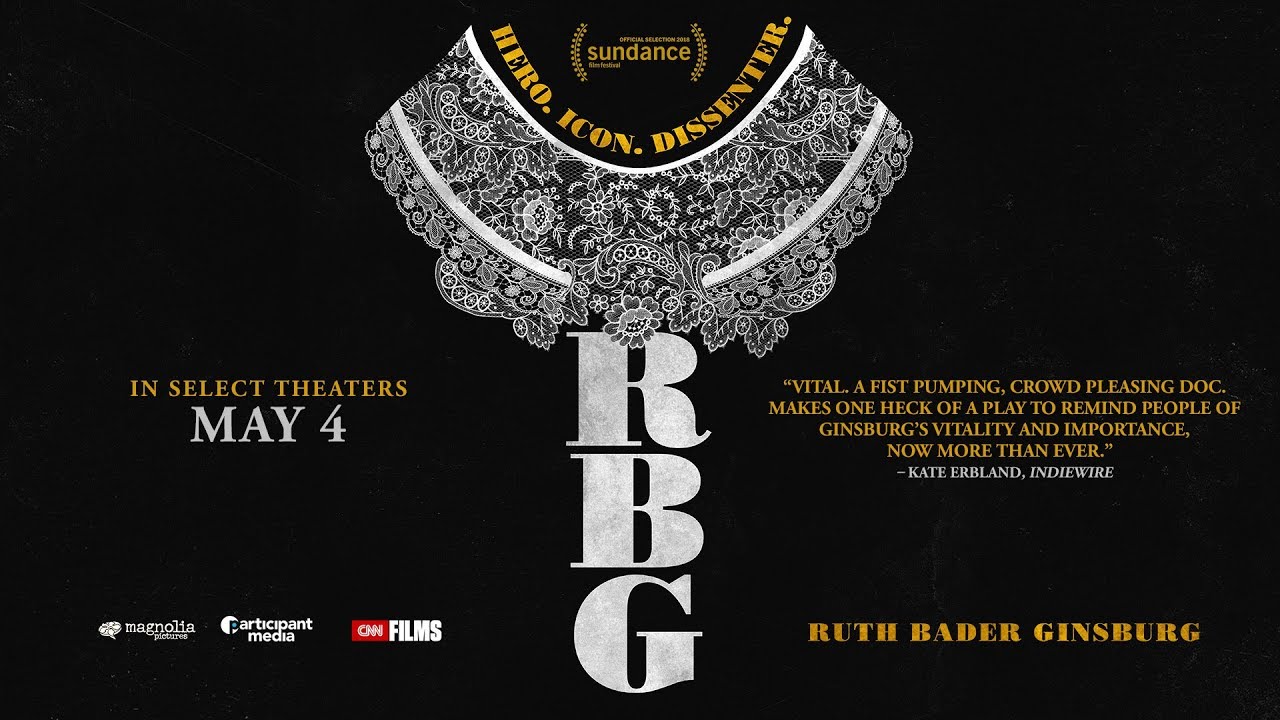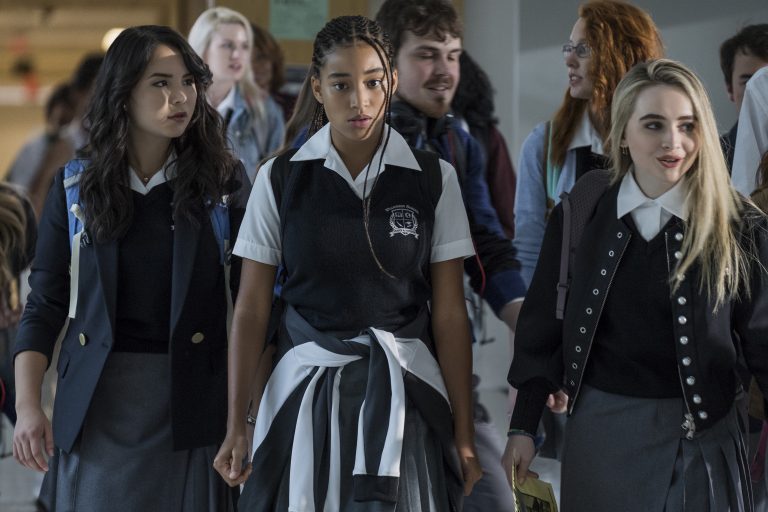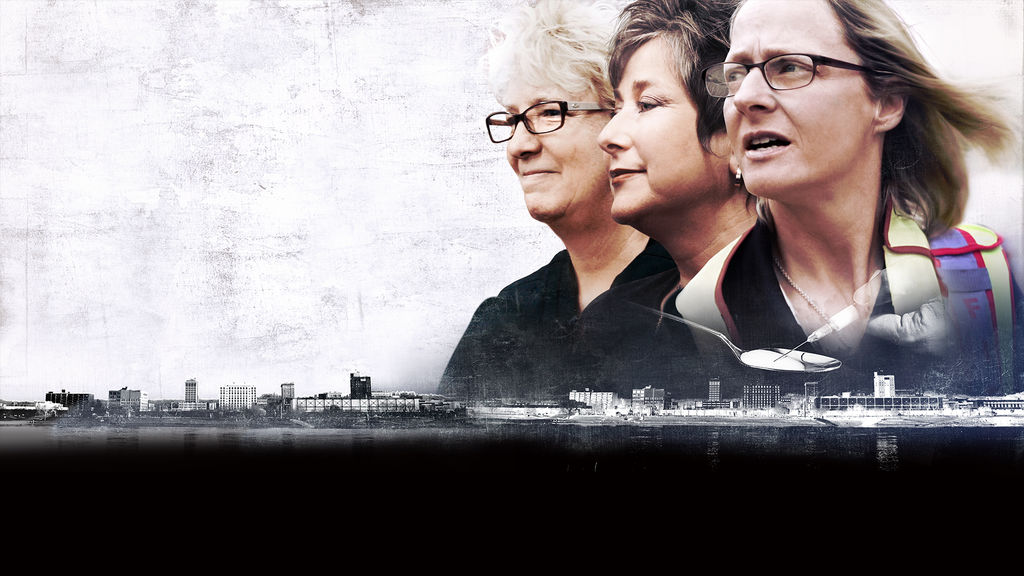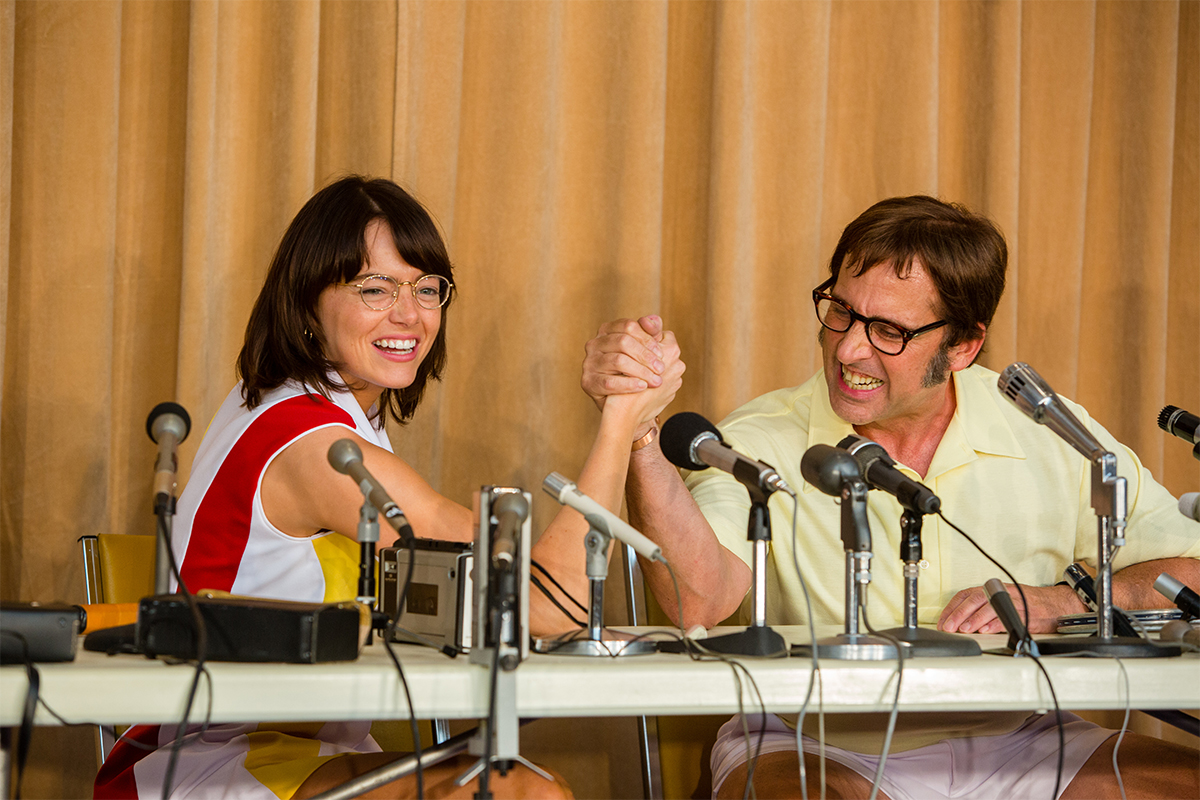
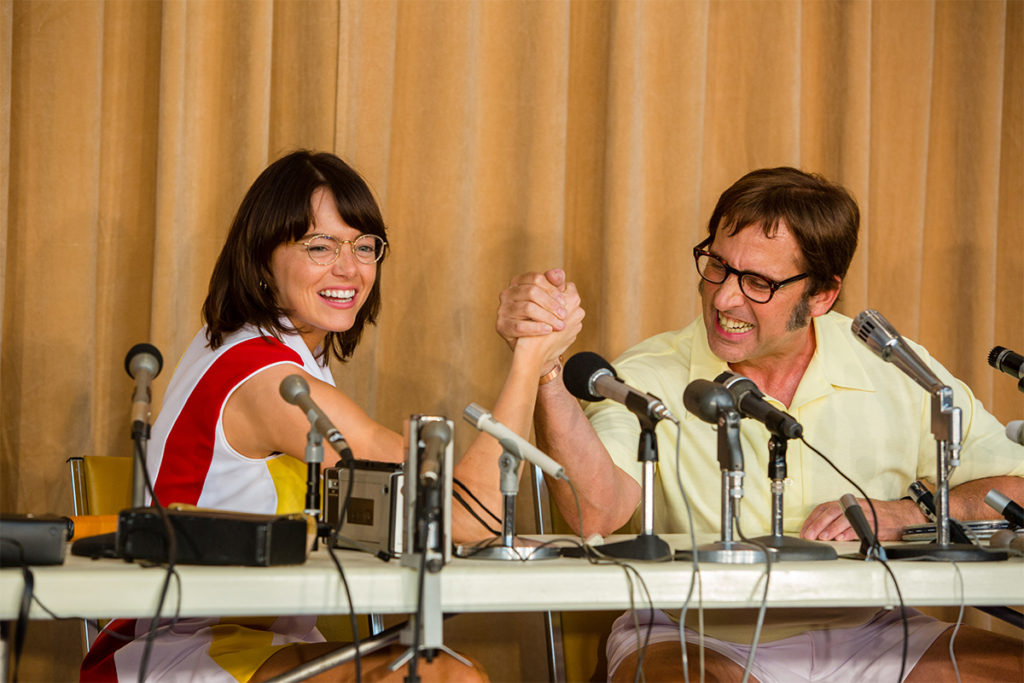
The film about the famed Riggs vs. King match shows how little has changed:
This week brings Battle of the Sexes, directed by Jonathan Dayton and Valerie Faris, the team that brought us the Oscar-winning Little Miss Sunshine, about the 1973 tennis match between the best female player in the world at the time, Billie Jean King (Emma Stone), against a hustling player and former Wimbledon champ, Bobby Riggs (Steve Carell). Many younger folks, even tennis fans, don’t know Billie Jean King, although she’s an important figure in the history of sports, as well as for women’s and LGBTQ history. Battle of the Sexes shows a time when women may have been working for equality, but were still seen as “the little lady”, and an adjunct to men, especially in sports. When 55 year old gambler and attention junkie Bobby Riggs challenged Billie Jean King, who was at the top of her game, to a match to essentially prove any male player could beat any female player, she saw it as an opportunity to prove women in tennis were an important, vital part of the sport. This film goes through the events leading up to the storied match, and the match itself.
What is by far the best about the movie is the acting. Although Steve Carell is meant to be broad and flamboyant, he carries it off with some surprising subtlety. This is not a cast that showboats. Both he and Stone portray their characters ably, working chiefly to service the story. I think of a number of other actresses with more emotional heft could have cast before Emma Stone to play King, but she does rise to the challenge. In fact, Andrea Riseborough would have been a fascinating, compelling choice instead of Stone to play King. Riseborough co-stars as King’s hairdresser and real-life lover Marilyn Barnett, and she is one of many great costars that add to the film, including Alan Cumming, Bill Pullman, and Sarah Silverman. Directors Dayton and Faris are known for great ensemble casts that genuinely work as a unit to bring a film together, and Battle of the Sexes is no exception. It is a shame, though, that the plot follows such a traditional trajectory. It loses the quirk for which the directors are known.
As to the larger issue of gender equality touched on by the film, if you know recent history, they show how little has changed. Thank goddess for Billie Jean King founding the Women’s Tennis Association in 1973, which pioneered gender equality in sports, but we haven’t really come a long way, baby. While, in no small part due to her, the US Open offered equal prize money starting in 1973, the same year as her famed match with Riggs caused such a stir, the rest of the Grand Slam tournaments only followed suit in the 2000’s, with the Australian Open doing so in 2001, the French Open in 2006, and Wimbledon in 2007. Venus and Serena Williams still agitate for equality in tennis, and they are definitely the most famous American players currently in the field, male or female. They have to have been inspired, in multiple ways, by Billie Jean King.
Last year, 5 top players on the US Women’s Soccer Team filed a wage discrimination lawsuit after winning the World Cup and bringing in millions more in revenue than their male counterparts. The lawsuit claimed the female players were making 40% less. They negotiated a new and better contract this year, but they still won’t make as much as the men, even if the men have a another horrible season.
It’s also only days since Beth Mowins became the first woman to call a nationally broadcast football game in the US, doing the NFL play-by-play for Monday Night Football.
The point is, Battle of the Sexes is unfortunately well-timed, even if the events of the film happened over 40 years ago, which is galling. Still, it points to the power of women standing up for what they believe is right, and as entertaining and fun as the movie is, that should be the takeaway, especially with our current political climate. That is could have gone deeper into the experience of a famous female athlete coming to terms with her sexual orientation may be true, but that would have been a different movie. It might have included the lawsuit between her and Marilyn Barnett some years later, and the very clear struggle Billie Jean had coming out as gay, having grown up in a homophobic family. Doing research on the movie sent me down a rabbit hole that was so fascinating, I had to work hard to pull myself out of it. That’s a film I would have preferred, however entertaining Battle of the Sexes might be, but Battle of the Sexes is about one event, the circumstances surrounding it, how it came about, and how it went down. As such, it captures time and place, offers a diverting two hours, and asks us to consider how much or little things have changed for women in our own time.
B

